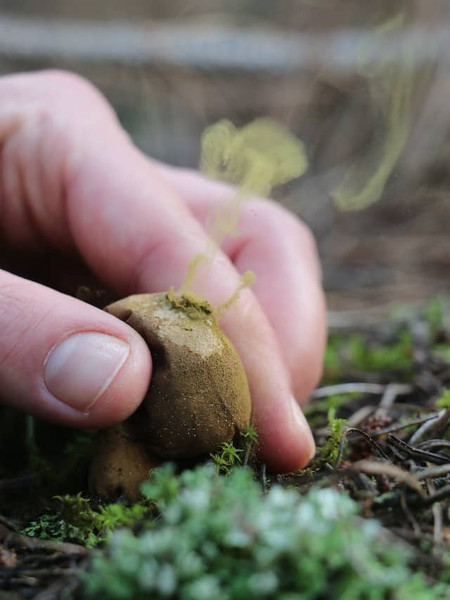Mushroom Spores vs. Spawn: Unveiling the Difference
Posted by Troy Cosky, Founder FunGuy Grow Supply on 7th May 2023
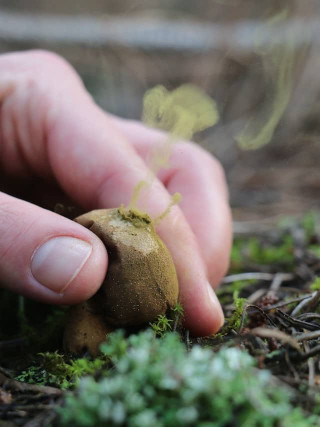
Welcome to the fascinating and mysterious world of mushroom cultivation! Aspiring cultivators are often introduced to terms such as "spores" and "spawn" in their research. These two elements represent the initial stages in the life cycle of mushrooms, and understanding the difference between them is crucial for successful cultivation.
Spores are the reproductive cells of fungi that can be compared to plant seeds, containing genetic material that determines their traits. They lay dormant until they find a suitable substrate to germinate on and grow into mycelium - the vegetative body of fungi. In contrast, spawn is mycelium grown on a prepared substrate used to inoculate new substrates, leading to fruiting bodies - the delicious mushrooms we all know and love.
In this article, we will delve into the differences between spores and spawn for an enhanced understanding of their roles in mushroom cultivation. We'll also evaluate the advantages and disadvantages of using a liquid syringe - a common tool used by beginner and advanced growers alike. It's essential to understand these pros and cons when deciding which method suits your goals best.
So whether you're an enthusiastic beginner or a seasoned cultivator looking to hone your techniques further, join us on this journey where we explore everything from spore prints to liquid cultures explicitly designed for specific strains of mushrooms!
The Vital Role of Spores: Unveiling Nature's Seed of Mushrooms
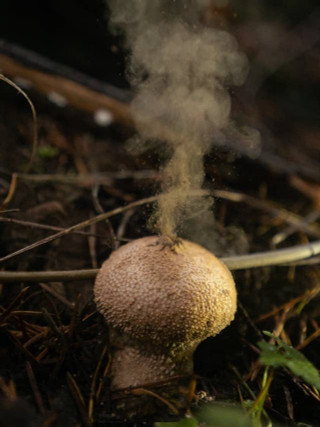
Spores are the reproductive cells of fungi and serve the vital function of spreading genetic material to new locations. In essence, they act like seeds; however, they differ significantly from plant seeds. Unlike plant seeds, spores only contain half the necessary genetic material for mushroom growth and must fuse with another spore of the same type to form a complete set.
In nature, spores can withstand harsh environmental conditions and remain dormant until they find a suitable substrate on which to develop into fungal mycelium. They travel in various ways such as air or water currents or sometimes by hitching a ride on an animal's fur. This dispersal ensures that fungi can spread their genetic material over vast distances.
Collecting spores from a mushroom is a common practice as the colors of spore prints can help identify different mushroom species. To make a spore print, cut off the cap of a mature fruiting body and place it gill-side down on white paper or foil overnight. The following day, lift the cap to reveal an impression of its gills - this is your spore print!
While collecting spores is an exciting hobby for many enthusiasts, using them as inoculates has its limitations. Spore germination rates are often inconsistent, meaning cultivation times and yields may vary wildly between batches cultivated using identical techniques. That said, using syringes filled with liquid culture can circumvent this issue altogether.
Spawn: The Building Blocks of Mushroom Cultivation
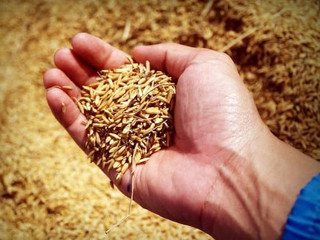
Spawn is a critical component of mushroom cultivation and plays a vital role in the fungal life cycle. As mentioned earlier, spawn refers to mycelium colonizing a prepared substrate, such as straw, wood chips, or sawdust. Once the spores germinate and form mycelium, they colonize the substrate and develop into what is known as spawn.
Growers often use spawn for large-scale mushroom growing operations due to its consistency in yield and adaptability. It serves as the foundation for the entire cultivation process leading up to harvesting edible mushrooms. Over time, growers have improved physical traits such as growth rate, fruit-body size, yield, and adaptability of various strains.
Cloning techniques play a crucial role in developing consistent and stable strains for specific varieties of mushrooms. By cloning strains instead of relying on wild spores, growers can ensure that their production remains genetically consistent. Cloned strains are grown from "master" grain spawn bags kept on agar petri dishes in culture banks.
At FunGuy Grow Supply, we distinguish between cloned cultures and wild spores to maintain high-quality production standards across all our products. Our spawn options include rye grain, wheat, birdseed, sawdust, and combinations of popular spawn materials such as millet, sawdust, rye, wood chips, etc., that come sterilized with moisture content suited to foster healthy development.
It's essential to note that using cloned strains also helps minimize genetic uncertainty – a prevalent issue while using spores for growing mushrooms. The variation in genetics among spores can lead to inconsistent yields while producing different flavor profiles within the same batch - an issue many cultivators want to avoid when producing edible mushrooms.
Spore Syringe vs. Liquid Culture Syringe: Understanding the Key Differences
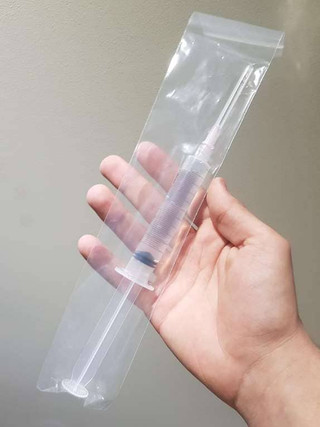
As a mushroom cultivator, you may encounter two types of syringes in the cultivation process - spore syringes and liquid culture syringes. Both are used for inoculating substrates, but they differ significantly in their composition and usage.
Spore syringes contain mushroom spores suspended in sterile water, making them an ideal choice for beginners or individuals growing mushrooms that may be prohibited in their jurisdiction, like psilocybin-containing mushrooms. However, it's important to remember that while spores themselves are legal to obtain for "microscopy use," cultivating psilocybin mushrooms is still illegal under federal law.
Liquid culture syringes are preferred by advanced cultivators and growers due to their reliability and consistency. They contain mushroom mycelium suspended in liquid culture, which provides faster colonization compared to using mushroom spores alone. The mycelium is already established in the syringe, ensuring strain consistency within each injection site.
Additionally, liquid culture syringes enable growers to select single-strain solutions rather than mixed strains of spores seen typically with mushroom spore syringes, leading to competition among strains that inhibit growth rate. Moreover, single-strain solutions generate more consistent yield quality by preventing variations from substrate sampling locations and environmental factors.
FunGuy Grow Supply: Your Source for High-Quality Spawn
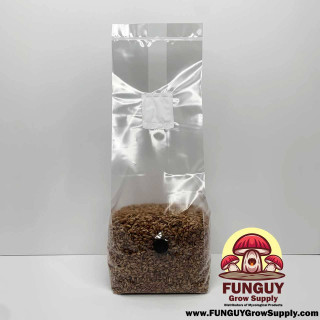
FunGuy Grow Supply takes pride in offering high-quality spawn that caters to a variety of mushroom cultivation methods. Our bird seed, wheat, sawdust, and rye grain spawn come prepared and ready to use, with different combinations of types suitable for both indoor and outdoor cultivation. We understand that different cultivation methods have unique advantages and considerations, making it essential to choose the method best suited for your goals.
Our selection of spawn supports an array of popular cultivation methods:
- Log cultivation
- Garden beds
- Containers
- Buckets
- Monotubs
- All-in-one mushroom grow bags
- Grow tents
Each method has its strengths and limitations concerning cost-effectiveness, scalability, necessary tools, and preferred substrates. Therefore, you should research the specific mushroom variety before making any purchase.
It's worth noting that the species of mushroom you wish to grow will influence which spawn to use. Some mushrooms thrive under certain conditions or substrates compared to others. For example, shiitake mushrooms prefer hardwood logs or sawdust blocks, while oyster mushrooms prefer softer wood and may do better with straw or coffee grounds-based substrates.
At FunGuy Grow Supply, we help beginners navigate this process by researching various types of mushrooms' growth habits using various growing techniques from authors such as Paul Stamets and reputable online resources.
Choosing the Right Spawn for Your Mushroom Cultivation Journey
In conclusion, the difference between spores and spawn lies at the heart of successful mushroom cultivation. Spores hold genetic material that enables mushroom reproduction, while spawn provides the foundation for growth. As we have explored in this article, choosing the right method between spore and liquid culture syringes depends on experience, the desired variety of mushrooms, and local regulations.
For beginners or those exploring mushrooms, spore syringes can be helpful, though they often result in uncertain genetic outcomes or a slower start pace compared to using liquid culture syringes with established mycelium. On the other hand, experienced cultivators benefit significantly from culture syringes by providing increased reliability, resulting in faster colonization rates and higher quality yields.
Researching cultivation methods and understanding trade-offs, like potential differences in colonization rate during the early stage of growth using spores versus established mycelium via liquid culture, are critical steps for success. Finding quality spawn is essential, regardless of which option you choose to use.
With a robust understanding of mushroom spores versus spawn in mind, you're now ready for your exciting journey into cultivating your mushrooms! Remember to check out additional resources throughout our website, FunGuy Grow Supply, as well as continually improve your cultivating technique with reliable information from research studies on mycology and fungi biology books.
So take charge: explore unique ways to grow different varieties of gourmet edible or medicinal mushrooms today! With each careful step taken towards growing successful harvests comes immense culinary satisfaction – stir fry, anyone?
Start growing delicious mushrooms today! Visit FunGuy Grow Supply for top-quality spawn, tools, and resources. Whether you're a beginner or experienced cultivator, we have what you need. Explore our site now and cultivate your own gourmet mushrooms!

